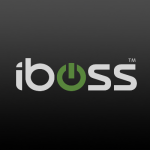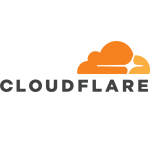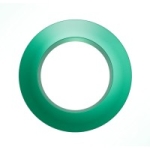What is our primary use case?
For now, I have one running on a corporate network. We make use of the modules that are there such as application filtering, web filtering, IPsec VPN, Network segmentation, advanced threat protection and others.
How has it helped my organization?
We extensively use FortiGate's security features to proactively detect and mitigate threat.
Use Web Filtering to control websites accessible to users and block inappropriate or unproductive sites.
Use Application Control feature to limit the use of risky or bandwidth-intensive applications.
We use the network segmentation feature for isolating and limiting potential threats.
Use SD-WAN to optimize the use of our internet links.
IPS functionality detects and blocks malicious network activity.
What is most valuable?
The core benefit is that a lot is packed into it. There are many features packed and significant flexibility from Fortinet FortiGate in being able to do numerous things. Even features such as SD-WAN provide granularity that I'm happy about. Generally, every aspect of it being a next-generation firewall provides good value.
What needs improvement?
In terms of pricing, Fortinet needs to do more to compete effectively. We gained a lot of traction from Fortinet in Nigeria, however, the battle is currently intensifying. Companies such as Palo Alto are making a strong impact. Fortinet was able to gain more attraction than Cisco in Nigeria for the past ten years, however, going forward, I'm not sure that trajectory will be maintained if Fortinet doesn't strategize regarding pricing and partnerships.
Regarding maintaining skilled personnel for Fortinet solutions, if they can address the pricing for certification exams, that would help. Sometimes it's a barrier for people here, especially for companies to train people to get certified. We train people in many other solutions we deploy, however, for Fortinet, though we intend to do that, it would be beneficial if there were more incentives for people pursuing certifications.
For how long have I used the solution?
I have been using my current solution for almost two and a half years. However, I have been using Fortinet FortiGate for up to seven years now, working with Fortinet.
What do I think about the stability of the solution?
I am satisfied with the performance.
What do I think about the scalability of the solution?
It is sufficiently scalable for my needs.
How are customer service and support?
Their technical support is very good. I'm happy with the technical support. When tickets are logged, the tracking system is excellent, and the response is fast. During the few times I raised tickets, I was satisfied with the support.
How would you rate customer service and support?
Which solution did I use previously and why did I switch?
I have experience with Cisco and a little bit of Sophos. I found Fortinet FortiGate better than Cisco in terms of functionality being packed in one device.
The scalability for Fortinet FortiGate was unparalleled at that time. I saw Fortinet as a company that had strong strategic plans in terms of maintaining market dominance and having long-term plans to survive in the industry. This industry is very dynamic and Fortinet has been doing the right things to compete effectively.
How was the initial setup?
The initial setup is simple. It's far better than my experience with Cisco.
What about the implementation team?
What was our ROI?
The return on investment is satisfactory.
What's my experience with pricing, setup cost, and licensing?
The license doesn't currently cover Secure Access Service Edge. Even though our currency in this part of the world is becoming increasingly weak, the pricing is now expensive for us. I have tried pushing Fortinet FortiGate to some customers, however, sometimes the transactions don't conclude due to pricing issues. Fortinet FortiGate may need to give special consideration for countries where currency has depreciated significantly, such as Nigeria. This will help in the competition.
Which other solutions did I evaluate?
I have previously worked with Cisco and Sophos and might have considered those before choosing Fortinet.
What other advice do I have?
I'm always an advocate of Fortinet FortiGate. It's natural that it's the first OEM I recommend when it comes to networking and network security infrastructure solutions.
Fortinet is my number one, especially regarding the Fortinet FortiGate. For virtual appliances and cloud security, Fortinet is still performing well. For endpoint security, other solutions appear more popular, so perhaps Fortinet should focus more on the endpoint security aspect.
I rate Fortinet FortiGate nine out of ten.
Which deployment model are you using for this solution?
On-premises
If public cloud, private cloud, or hybrid cloud, which cloud provider do you use?
Disclosure: My company has a business relationship with this vendor other than being a customer. Integrator




















